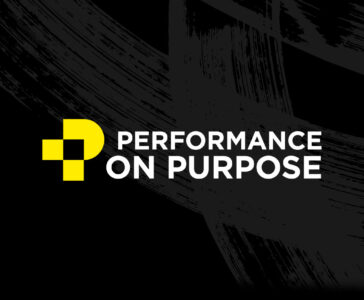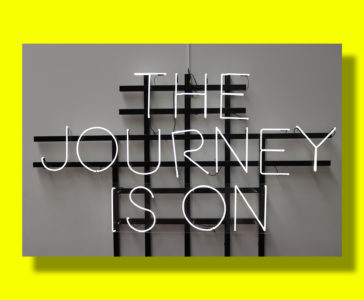“I totally get it now! We are all just people who want to make a difference!” declared an exuberant participant in a recent SMPS panel discussion in New York City about Millennials.
As simple as this idea might sound, with all the rhetoric about the Millennial generation, it would be easy to think they are some alien life form no one has any idea what to do with. But once you look past the ever popular “us vs. them” frame it becomes obvious that there is no single generation that outright owns creativity, leadership, drive, laziness or any other characteristic. Under those conditions, the idea that we are just people interested in contributing in meaningful ways is an epiphany.
That’s not to say that there aren’t distinctions among the generations useful to acknowledge. After all, Boomers, Gen X and Millennials grew up in very different worlds. The organizations that have figured out how to leverage these differences are the ones that always seem to be innovating, have teams deeply engaged in their work and stand out among their competitors, like Svigals + Partners, Studios Architects, Dewberry and COOP Brand Partners. So what’s their secret? At the recent SMPS TME event in New York City I moderated a panel discussion in the hopes of finding out.
How the world works for a Millennial
It is important to recognize that as a consequence of when you were born, there were things unique in the world that have influenced your perception of what it means to operate successfully in it. This topic, as it pertains to Millennials, has been covered ad nauseam by the media, however most often covered in a way that puts increasing distance between Millennials and everyone else. During the course of developing the panel and during the panel discussion itself, these two powerful distinctions came through clearly that if leveraged, could bring us all closer together.
1) Time vs. Contribution
As a Gen Xer I started my career with the idea that if I put in the time, advancement would follow. That is the traditional way professional service organizations grow and transition new leaders. However, Millennials operate with a different view and see that the reason you advance should not be simply time spent, rather, how valuable your contributions to the organization are.
Without this distinction, it can look like Millennials feel they are entitled. With it, we might see a person who is driven to contribute as much value as quickly as they can and expect to be recognized for doing so. Much as I would expect that if I put in my time, I should be recognized for it. This points to a potential possibility; creating a way to recognize individuals for the value they contribute, not just the time they have spent. Something anyone from any generation would appreciate and, as a result, be more engaged in their work.
2) Hierarchy vs. Network
Organizations through the ages have more-or-less been structured as hierarchies. Hierarchical businesses have perfected reliable and predictable production of goods and services. But times have changed and the world is moving at a pace where hierarchies get in the way of progress and we are now seeing new organizational structures emerge as a result, e.g. Self-Organizing, Networked Structure, etc.
Millennials want to get things done just as much as the rest of us. The difference is they see organizations as an open network of available resources rather than a hierarchical structure with limited access. For those of us who have grown up with hierarchies, when we see someone so easily step into offices and meetings it took us so much time to get permission to be in, it can be shocking. However, if we look at it with this distinction in mind, this networked way of working with each other can vastly accelerate an organization’s ability to deliver work.
Including different ways of being and doing = innovation and growth
What’s possible if we reward an employee’s contribution, not just the time they’ve spent, or set aside hierarchy and access our teams as a network? The point is that it is not productive to fixate on the ways Millennials think and operate that fly in face of how it’s been thought of or done in the past. Rather consider the fact that if you invite new ways of seeing and doing things, your organization could be much more successful in delivering new value.
What do Millennials need to thrive?
It is vital to provide conditions in which Millennails can thrive in our organizations. Consider this: Millennials will make up over 50% of the workforce by 2020 – so this will quickly become essential to any organization who plans on existing much further into the future. To that end, the Millennials on the panel and those in the audience shared some things those who manage them can provide that are vital for their success.
- Challenge me: Provide an objective with little structure and a crazy deadline that I can run with
- Give me room: Let me attempt to reach that objective my own way
- Guide me: Check in with me regularly but be open to the new ways I have approached the problem. Ask me questions, share your wisdom, but don’t prescribe. Let me fail and try again
- Listen to me: I have great ideas that I want to share because I want the same thing you want, my organization to be successful
What can I do to best mentor and develop my younger team?
One of the unique parts of the panel was the fact we had two pairs of colleagues who worked together as employee and manager. As a result, the managers were able to share their perspectives on things they have done that allowed their team to not just succeed, but exceed expectations.
- Invite ideas: Ask your Millennial colleague how they would do things, or let them evaluate how you’ve done things in the past to see if they have any suggestions. Remember, this generation grew up with a mastery of technology at the age of 12
- Push idea development: If they want to change “how things get done around here”, push them to develop the idea so that it is justifiable, implementable and measurable
- Share what you need: Don’t be afraid to share with them what you need to be successful, and in turn what they need to do to be successful. Millennials need to learn from your experience
- Be flexible: Be willing to entertain new and unconventional ways of working, such as flexible hours or freelance instead of full-time. Be clear what the expectations are, try something and evaluate based on their ability to deliver
Wait a minute, I’m not a Millennial and I want this too!
If you look over the ideas above, is there anything here that is truly unique to Millennials? Aren’t these things anyone from any generation needs to be engaged and successful in their job?
If we remove generational labels and the assumptions attached to them, it becomes a conversation about how to engage our teams in a way that inspires them to deliver their best and not one about arguing over differences.
The struggle
From my experience, the reason so many organizations struggle engaging Millennials and as a consequence deal with high employee turnover, difficulty recruiting and low employee engagement, is the fact that there is something missing in their organizations that if they had, would make all the difference. A sense of purpose that goes beyond delivering the products they make and the services they sell: What they stand for and why they matter.
I work with organizations to help them design and live their ideal future. To do that requires everyone in the organization to feel they have ownership of that future. Establishing ownership is a process of creating opportunities that invite diverse contributions that are shaped to form that organization’s future. I’ve learned that working with the Millennial generation, or any other generation isn’t a challenge, rather an invitation to create bigger and brighter future. But it all has to begin with establishing a reason to engage, contribute and care about what you’re doing.
In the end, your teams are just people that want to work on things that are meaningful and make a difference. Is it clear to you and your team the difference your organization makes?
About Brent
Brent works with leaders to design futures worth fighting for. A partner at Fathom, he champions an approach to strategic planning, employee engagement, leadership succession and market differentiation that prioritizes people and relationships. As a result, his clients don’t simply plan their futures, they bring them to life through the energy of organization-wide involvement in, and commitment to, generating valuable businesses that matter.
Want more from Fathom?
Sign up to receive updates about our articles.


